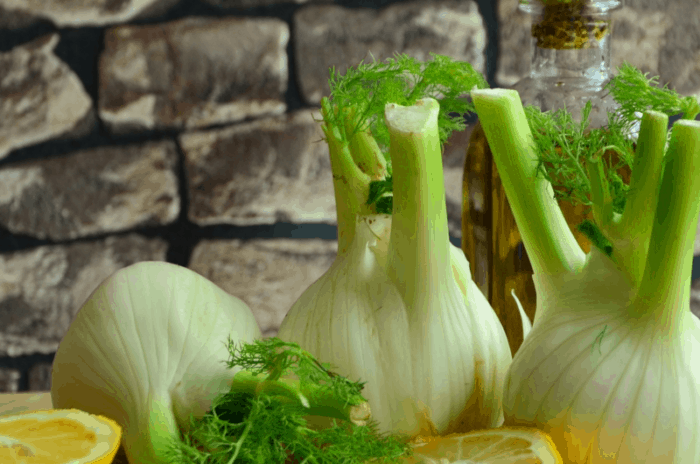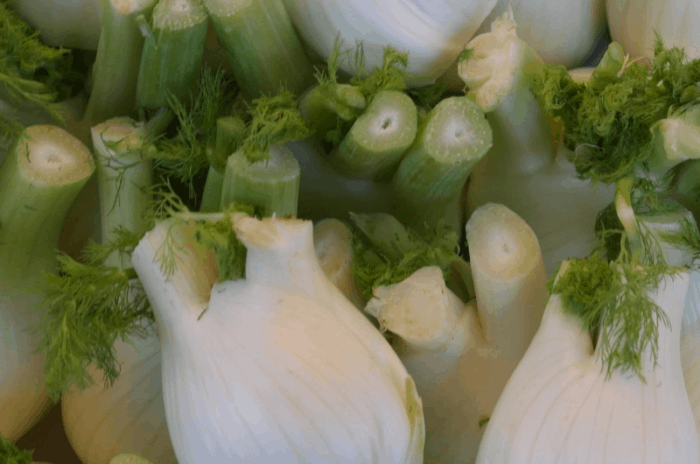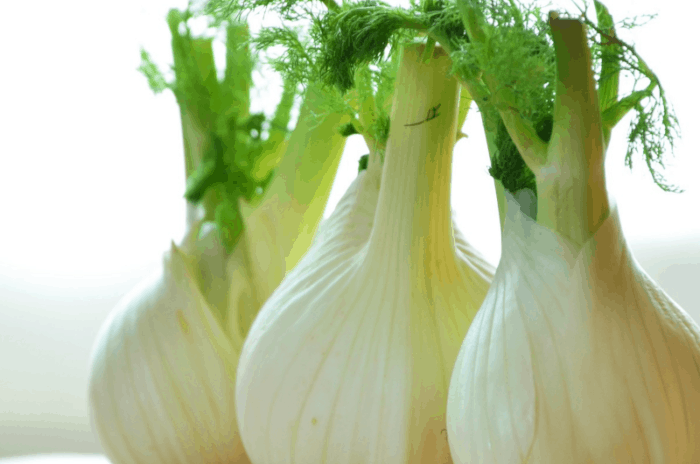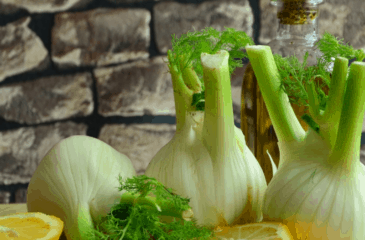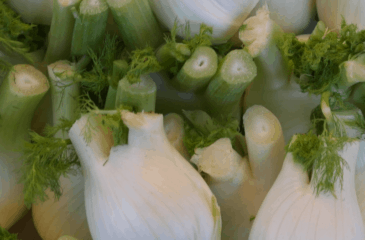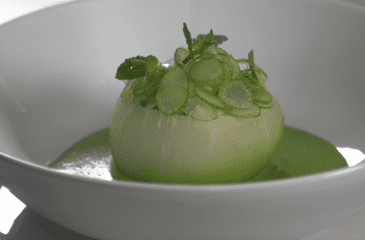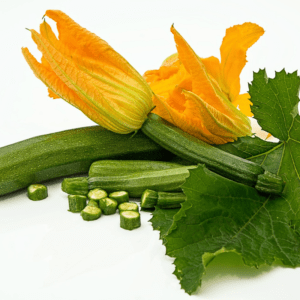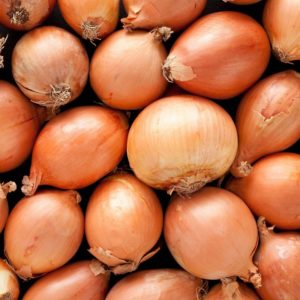Fennel belongs to the Apiaceae family, like celery and carrot.
Wild, its wispy tasty fronds and seeds are used as a herb in cooking (and a vital ingredient in the Sicilian Pasta with sardines.
The cultivated Florentine fennel forms a bulb-like structure that has a mild and refreshing anise-like flavour and aroma, with a crisp juiciness.
Depending on the variety and the cultivation techniques, its bulb size may vary.
It is often mistakenly thought that there are male fennel (from the plumper bulb) and female fennel (from the flatter bulb), while in reality it is a purely varietal matter.
The bulb, foliage, and fruits of the fennel plant are used in many of the culinary traditions of the world.
The bulb may be served as a vegetable, sauteed, stewed, braised, or eaten raw, on its own, or with other ingredients.
Florence fennel, the bulb, is often tossed with bitter greens and avocado, or blanched, then marinated, or cooked into a risotto; and it is surprisingly good cooked quickly on a barbecue, basted with olive oil.
The tender young leaves may be used as a delicate garnish, or as a flavouring for sauces or soups—what would French Provencal fish soups be without the fragrance of fennel leaves? Fennel may be roasted with fish, and topped with crumbs, as a French gratin, or finely chopped raw into a salad with tomatoes, black olives, and perhaps a little basil? Sliced raw fennel, roasted red peppers and black olives make a quick and refreshing starter or side salad.
Both the bulb and the tender young shoots can be eaten like celery, and are often included in the Northern Italian meal of dipping vegetables into olive oil, and salt: pinzimonio.
Benefits of fennel:
- A good source of fibre as well as heart-friendly nutrients like potassium and folate, vegetables like fennel may support heart health.
- Fennel contains beta-carotene (which is converted to vitamin A in the body) and vitamin C, which is important for collagen production and tissue repair.
- Rich in antioxidant nutrients such as vitamin C and plant flavonoids such as quercetin, fennel may help reduce inflammation.
- Low in calories but full of flavour, fennel is a useful ingredient to include in a weight management plan. With a low glycaemic index (GI) and high fibre contribution, fennel may help moderate blood sugar release as part of a meal.
- Fennel is a good source of folate, which is needed for healthy red blood cell formation. Increasing your intake of folate-rich foods may improve symptoms of anaemia.

